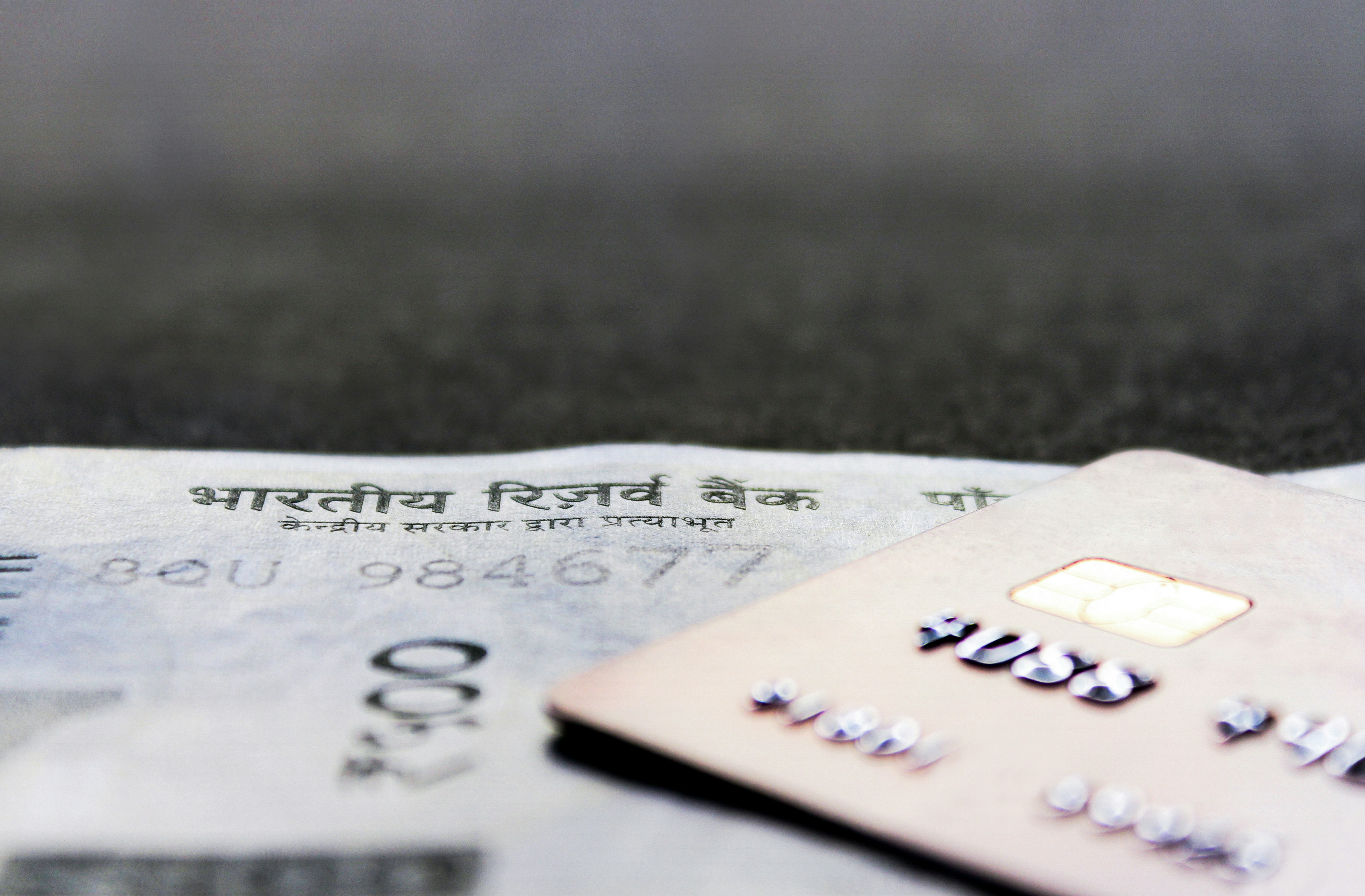Understanding Credit Scores
A credit score is a numerical representation of an individual’s creditworthiness, reflecting their ability to repay borrowed money. In India, credit scores are generated by credit bureaus using various algorithms and scoring models. The most commonly used scale ranges from 300 to 900, with a higher score indicating better creditworthiness. Generally, a score above 750 is considered good, while one below 600 may lead to difficulties in securing loans or credit facilities.
Credit scores are calculated based on several key factors. The foremost is payment history, which accounts for approximately 35% of the score. This aspect evaluates whether individuals consistently make their payments on time, reflecting their reliability as borrowers. Next is credit utilization, which constitutes about 30% of the score. This factor assesses how much of the available credit limit is being used; ideally, keeping this ratio below 30% is advisable for maintaining a healthy score.
Length of credit history is another crucial factor, contributing around 15% to the score. This criterion takes into account how long the credit accounts have been active. A longer credit history generally signals a more experienced borrower. Additionally, the types of credit utilized make up about 10% of the score. This metric evaluates the diversity of credit accounts, such as credit cards, mortgages, and personal loans, indicating a responsible mix of credit. Lastly, new credit inquiries, which account for 10% of the score, analyze the requests for new credit. Frequent inquiries can suggest financial distress, negatively impacting the score.
In India, several credit bureaus operate, including CIBIL, Equifax, Experian, and CRIF High Mark. Each bureau may have slightly different scoring models and may report variations in scores. Understanding these elements is essential for individuals looking to improve their credit health and financial opportunities.
The Importance of a Good Credit Score
A good credit score is a pivotal element of personal finance management in India. It serves as a reflection of an individual’s creditworthiness and directly influences their ability to secure loans and credit facilities. In India, credit scores typically range from 300 to 900, with a score above 750 being considered excellent. Maintaining a high credit score can result in a plethora of benefits that significantly ease financial transactions.
One of the primary advantages of having a high credit score is the ease of loan approvals. Financial institutions are keen to extend credit to individuals with a solid credit history, as they are perceived to be lower risk borrowers. Consequently, those with good credit scores often find that their loan applications are processed more swiftly, reducing the time spent in financial distress during emergencies.
Moreover, a good credit score often translates to lower interest rates on loans and credit products. Lenders typically offer more favorable terms to those deemed less of a risk, which means that having a high score can save substantial money over the life of a loan. This reduction in interest rates can make purchasing homes, cars, or funding education much more affordable for individuals with good credit histories.
Several financial institutions also extend better negotiation power to customers with high credit scores, allowing them to secure premium credit cards or financial products that come with rewards, cash back, or other benefits. This can significantly enhance the overall financial experience, allowing individuals to earn from their expenditures.
Furthermore, societal perception plays an essential role in the importance of a good credit score in India. Individuals with high credit ratings are often viewed as responsible and trustworthy, enhancing their reputation in both personal and professional circles. This perception can influence opportunities for rental agreements, job prospects, and general social standing.
How Credit Scores Affect Loan Applications
In India, credit scores are pivotal in determining the success of loan applications across various financial products, including personal loans, home loans, and car loans. Lenders utilize credit scores as a primary factor in assessing a borrower’s creditworthiness. This numerical representation, typically ranging between 300 to 900, reflects an individual’s credit behavior, including their repayment history, existing debt levels, and the length of their credit history. A higher score indicates better credit management, thereby enhancing the chances of loan approval.
When applying for loans, a low credit score can significantly hinder the approval process. Lenders often view a score below 650 as high risk, which may lead to loan applications being denied outright. Furthermore, borrowers with lower credit scores may encounter higher interest rates, which can substantially increase the total cost of borrowing. These financial implications emphasize the importance of maintaining a healthy credit score, as it serves not only as a reflection of past financial behavior but also influences future financial opportunities.
Lenders typically examine various aspects of an applicant’s credit history before making a lending decision. They may evaluate the number of open credit accounts, the types of credit used, and any recorded defaults or bankruptcies. Additionally, a stable employment history and consistent income can bolster an applicant’s profile, but these factors cannot substitute for a poor credit score. Additionally, these lenders may also apply their internal criteria, leading to variability in loan approval across different banking institutions.
Overall, understanding the impact of credit scores on loan applications is crucial for individuals seeking to navigate the borrowing landscape in India. By improving their credit scores through responsible financial behaviors, potential borrowers can enhance their financial prospects and secure favorable loan terms.
Impact of Credit Scores on Renting and Lease Agreements
In India, credit scores play a significant role beyond conventional financial transactions, extending their influence to renting and lease agreements. Landlords and property managers frequently view credit scores as a reliable metric for assessing the financial responsibility of potential tenants. A good credit score, often considered an indicator of fiscal discipline, enhances an individual’s chances of securing a property lease. Conversely, individuals with poor credit scores may face substantial challenges when seeking rental accommodations.
Landlords often use credit scores alongside other factors, such as employment history and income levels, to evaluate the risk associated with a prospective tenant. For those with lower credit scores, securing a rental agreement can become a daunting task, as landlords may perceive them as high-risk tenants. Consequently, applicants may experience rejection from desirable properties, forcing them to either settle for less favorable housing options or even remain without shelter.
Individuals with poor credit scores may face additional challenges, such as needing to offer higher security deposits or having a co-signer. In some situations, they might be asked to provide proof of income or even references to mitigate the landlord’s concerns about their financial reliability. It is essential for those aspiring to rent properties to be proactive regarding their credit health. This can be achieved through timely bill payments, reducing outstanding debts, and monitoring credit reports for inaccuracies.
Moreover, potential renters can improve their credit scores over time, allowing for better opportunities in the housing market. Seeking financial guidance or opting for credit counseling services can equip individuals with tools to manage their credit effectively. Ultimately, while credit scores certainly impact renting and lease agreements in India, awareness and proactive measures can substantially shift the rental landscape for those with lower scores.
Employment Opportunities and Credit Scores
In recent years, the role of credit scores in employment opportunities has gained increased attention in India. While traditionally associated with borrowing capacity, credit scores are becoming an integral part of the hiring process, particularly in sectors like finance, banking, and insurance. Employers are increasingly viewing credit scores as an indicator of a candidate’s financial responsibility and integrity. This trend can be attributed to the growing recognition that an individual’s ability to manage personal finances may reflect their potential job performance, especially in roles that involve financial decision-making.
A low credit score can raise concerns for employers, leading them to question the applicant’s reliability and judgment. For instance, in finance-related jobs, a poor credit history might suggest a lack of discipline in managing one’s finances, which can extrapolate to a lack of diligence in managing the company’s finances. As a result, individuals with unfavorable credit ratings may find their job prospects limited, particularly in positions that require a high level of trust and responsibility. This new employment trend can be particularly disheartening for those who may have experienced financial difficulties in the past but are otherwise qualified for the roles they are applying for.
To mitigate concerns related to credit scores during the hiring process, prospective employees can take several proactive steps. First, it is advisable to regularly monitor and maintain credit reports to ensure accuracy. Addressing discrepancies promptly can help improve scores. Additionally, candidates may consider proactively discussing their credit situations in interviews, especially if they have taken steps to recover from past financial challenges. Finally, seeking employment in sectors less focused on credit history, at least initially, can provide valuable work experience while allowing candidates to improve their financial standings over time.
Building and Maintaining a Good Credit Score
Establishing and sustaining a good credit score is essential for individuals in India who wish to access loans, credit cards, or other financial products. A strong credit score not only reflects financial reliability but also enhances one’s ability to secure favorable interest rates and terms. Here are several practical strategies to help achieve and maintain a healthy credit score.
First and foremost, making timely payments is crucial. Late payments can significantly damage one’s credit score, as payment history is one of the most substantial factors in credit scoring models. Setting up automatic payments or reminders can help individuals stay on top of their payment schedules, ensuring that credit accounts remain in good standing.
Secondly, keeping credit utilization low is critical. Credit utilization, the ratio of current credit card balances to available credit limits, should ideally remain below 30%. High utilization can signal to lenders that an individual may be over-relying on credit, which could lead to a decrease in one’s credit score. Regularly monitoring one’s credit card balances and paying them down when possible is advisable to maintain low utilization.
Avoiding unnecessary credit inquiries is another important step. While it is beneficial to establish a diverse portfolio of credit accounts, frequent applications for new credit can lead to multiple hard inquiries, which negatively impact the credit score. It is wise to limit new credit applications and only pursue those truly necessary for financial needs.
Finally, maintaining a diverse portfolio of credit accounts, including credit cards, personal loans, and perhaps even auto or home loans, can positively influence one’s credit score. A diverse mix showcases the ability to manage different types of debt responsibly. By implementing these strategies, individuals can effectively build and maintain a robust credit score, paving the way for better financial opportunities in the future.
Monitoring Your Credit Score
Regularly checking your credit score is an essential part of maintaining financial health in India. Your credit score significantly influences lending decisions, affecting your ability to secure loans, credit cards, and even rental agreements. By monitoring your credit score, you can stay informed about your credit standing and take necessary actions to improve it if needed.
In India, obtaining a free credit report is quite straightforward. Under the guidelines set by the Reserve Bank of India, every citizen is entitled to one free credit report per year from each of the major credit bureaus: CIBIL, Experian, Equifax, and CRIF High Mark. To access these reports, individuals can visit the official websites of these bureaus and provide the necessary identification details. This practice not only enables you to check your credit score but also helps uncover any potential discrepancies or fraudulent activities that could adversely impact your credit profile.
When reviewing your credit report, pay close attention to the various components that contribute to your credit score. These components typically include your payment history, credit utilization ratio, the length of your credit history, and the mix of credit types you hold. Understanding these elements allows you to assess where you excel and where you may need to make improvements. For instance, if your credit utilization ratio is high, it may be beneficial to pay down existing debts to enhance your credit score. Additionally, ensuring timely payments on your existing loans and credit cards is crucial for maintaining a healthy credit score.
Ultimately, by regularly monitoring your credit score and interpreting the findings from your credit report, you can take proactive steps to improve your creditworthiness. This can lead to better interest rates and credit terms, significantly impacting your financial wellbeing in the long run.
Consequences of a Poor Credit Score
In India, a poor credit score can have significant implications for individuals seeking financial stability. One of the immediate consequences of a low credit score is the likelihood of incurring higher interest rates on loans. Lenders often perceive individuals with poor credit as high-risk borrowers, leading them to impose stringent terms and conditions. Consequently, borrowers may find themselves paying significantly more over the life of a loan, which can strain their financial resources.
Furthermore, individuals with a poor credit score may face challenges in securing loans or credit. Many financial institutions perform credit checks before approving applications for personal loans, home loans, or credit cards. A low score might result in outright rejection, preventing individuals from accessing essential funds even during emergencies. This inaccessibility can create a vicious cycle, as the inability to obtain credit can lead to missed opportunities, which further exacerbates financial difficulties.
In addition to higher interest rates and difficulty in obtaining loans, a poor credit score can also lead to legal actions. Creditors may resort to legal measures to recover outstanding debts, which can result in court proceedings. This not only affects a person’s financial health but can also tarnish their reputation. Furthermore, in extreme cases, persistent non-payment of debts may lead to property seizures or wage garnishments, creating long-lasting consequences for individuals and families.
Overall, the repercussions of a poor credit score extend beyond mere financial penalties. They can profoundly impact an individual’s lifestyle and well-being, limiting their ability to make significant life decisions such as purchasing a house, investing in education, or even starting a business. The importance of maintaining a healthy credit score in India cannot be overstated, as it directly correlates with an individual’s financial opportunities and stability in the long run.
Future Trends in Credit Scoring in India
The credit scoring landscape in India is evolving rapidly, driven by advancements in fintech and changing consumer behavior. As the financial ecosystem shifts towards digital solutions, credit scoring methodologies are also adapting. Traditional credit assessment methods, which often rely heavily on historical data and a limited set of criteria, are being supplemented by innovative approaches that leverage alternative data sources. This evolution aims to enhance the accuracy and fairness of credit evaluations for a broader segment of the population.
One notable trend is the integration of alternative data into credit scoring systems. This includes non-traditional metrics such as payment histories for utilities, rent, and even social media behavior. By considering these aspects, lenders can gain a more comprehensive view of a borrower’s financial reliability, especially for individuals with little or no formal credit history. Such inclusive practices enable a larger portion of the population, particularly those in rural or underserved areas, to access credit that was previously unavailable to them.
Moreover, machine learning and artificial intelligence are becoming predominant tools in the credit assessment process. These technologies can analyze vast amounts of data quickly, allowing for real-time credit scoring that is more reflective of an individual’s current financial situation. This shift towards data-driven decision-making not only improves approval rates for borrowers but also reduces the credit risk for lenders, leading to a more robust financial landscape.
As India continues to embrace digitalization, the future of credit scoring will likely see a convergence of traditional financial institutions and fintech innovations. The collaboration between these entities can enhance credit models, ensuring they remain relevant in today’s fast-paced market. With ongoing regulatory support and technological advancements, the future of credit scoring in India promises to be more inclusive, efficient, and equitable for all participants in the financial system.




